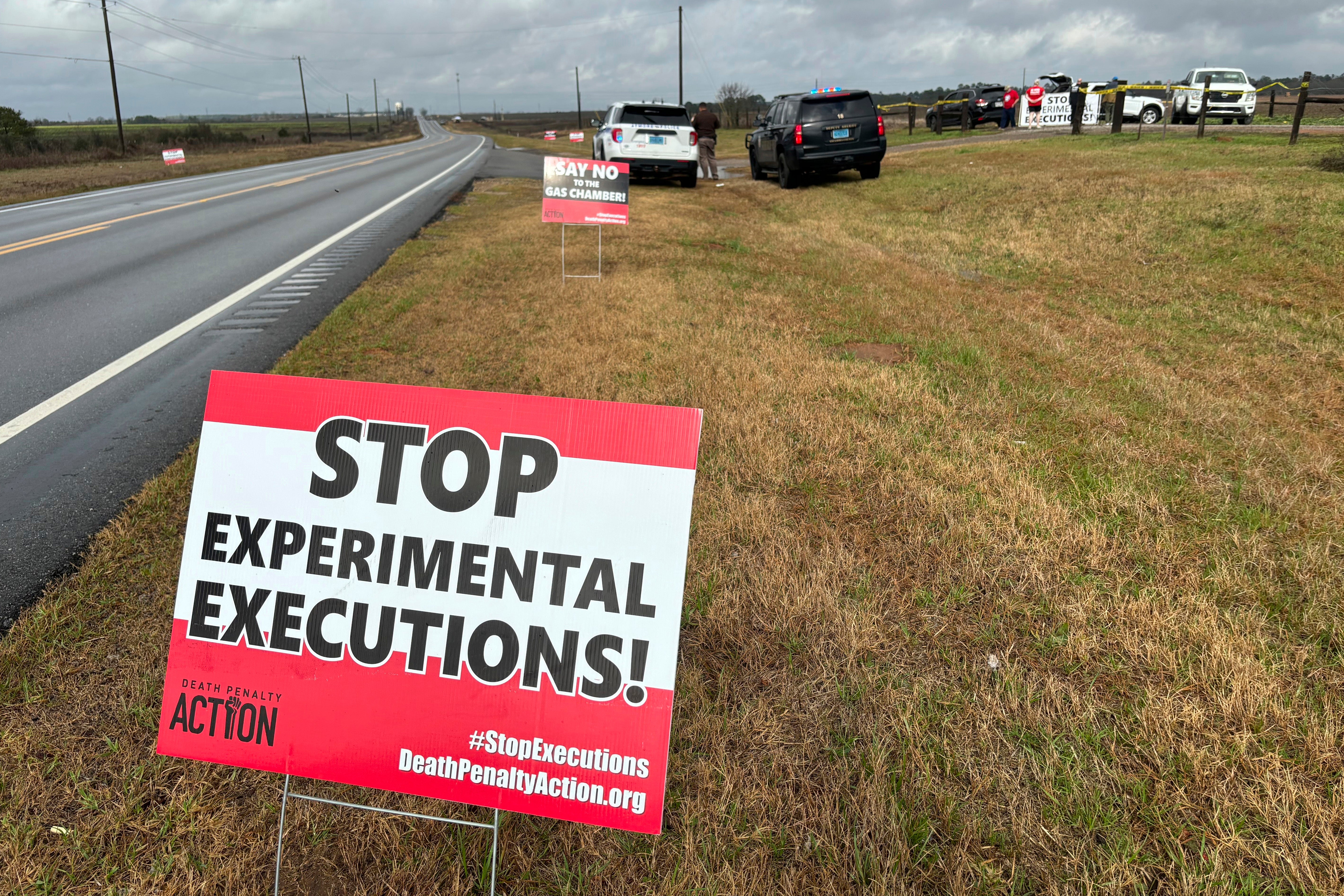First nitrogen execution was a 'botched' human experiment, Alabama lawsuit alleges
An Alabama death row inmate has filed a lawsuit challenging the constitutionality of nitrogen gas execution

An Alabama death row inmate filed a lawsuit Thursday that challenges the constitutionality of nitrogen gas executions, arguing that the first person in the nation put to death by that method shook violently for several minutes in “a human experiment that officials botched miserably.”
The lawsuit filed in federal court in Alabama alleges the January execution of Kenneth Eugene Smith by nitrogen gas was torturous and "cannot be allowed to be repeated.” The lawsuit says descriptions from witnesses that Smith shook and convulsed contradicted the state's promises to federal judges that nitrogen would provide a quick and humane death.
“The results of the first human experiment are now in and they demonstrate that nitrogen gas asphyxiation is neither quick nor painless, but agonizing and painful," attorney Bernard E. Harcourt wrote in the lawsuit. The lawsuit was filed on behalf of death row inmate David Phillip Wilson, who was sentenced to death after he was convicted of killing a man during a 2004 burglary.
The lawsuit seeks a declaratory judgment that the current nitrogen gas asphyxiation protocol violates the inmate's constitutional right to protection from cruel and unusual punishment.
Alabama last month became the first state to use nitrogen gas to put an inmate to death. Nitrogen gas is authorized in three states — Alabama, Oklahoma and Mississippi — but no state had previously attempted to use it.
During the execution, a respirator face mask — which is normally used in industrial settings to deliver life-preserving oxygen — was strapped to Smith's head. Pure nitrogen gas was then pumped into it, causing him to die from lack of oxygen.
The U.S. Supreme Court allowed Smith's execution to proceed last month. The lawsuit contends that media and witness accounts of the execution contradict the state's prediction to the courts that the nitrogen gas would render Smith unconscious “within seconds."
Smith shook in thrashing spasms and seizure-like movements for several minutes at the start of the execution. The force of his movements caused the gurney to visibly move at least once. Reporters from The Associated Press, al.com, the Montgomery Advertiser, the Alabama Reflector and WHNT attended the execution as media witnesses.
“In stark contrast to the Attorney General’s representations, the five media witnesses chosen by the Alabama Department of Corrections and present at Mr. Smith’s execution recounted a prolonged period of consciousness marked by shaking, struggling, and writhing by Mr. Smith for several minutes after the nitrogen gas started flowing,” the lawsuit stated.
The lawsuit argues the problematic execution came in a state that already had a “bad track record of botched executions.” Alabama Gov. Kay Ivey in 2022 ordered an internal review of how death sentences are carried out after an unprecedented third failed lethal injection.
Alabama Attorney General Steve Marshall has maintained that the execution was “textbook” and said the state will seek to carry out more death sentences using nitrogen gas.
“As of last night, nitrogen hypoxia as a means of execution is no longer an untested method. It is a proven one,” Marshall said the morning after Smith's execution, extending an offer of help for states considering adopting the method.
Alabama Corrections Commissioner John Q. Hamm said he thought Smith might have deliberately held his breath, but also said the state expected involuntary movements and the type of breathing that occurs with lack of oxygen.
“That was all expected and was in the side effects that we’ve seen or researched on nitrogen hypoxia,” Hamm said.
Bookmark popover
Removed from bookmarks